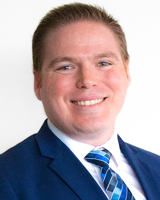4 San Mateo County police departments partner with mental health professionals for 911 calls

SAN MATEO COUNTY, Calif. (KGO) -- Four of the biggest cities in San Mateo County began their pilot program Monday that partners trained mental health professionals with police officers to respond to behavioral health crisis calls.
With 14 years of law enforcement experience, San Mateo County Supervisor Don Horsley aimed to find a solution for how police can best respond to mental health calls.
"My goal always was to solve situations in a safe way that provides for public safety and everyone gets to go home at night," Horsley said. "Whether that's both the mentally-ill person or deputy sheriffs and police officers."
RELATED: Is there a better way to police? One California city may have found the answer
With not every case turning out that way, he asked, "what could we do differently?"
As of Monday, Daly City, South San Francisco, San Mateo and Redwood City police departments will send officers and trained clinicians to mental health calls.
"This is community-centered wellness, this is community-focused wellness and then it allows the police officers to do what they really need to do," San Mateo County Supervisor David Canepa said.
VIDEO: SF mayor proposes street team to respond to wellness checks instead of police

In addition to allowing police to focus on crime, the project aims to provide an alternative to jail for people undergoing a behavioral health crisis.
San Mateo Police Department Clinician Briana Fair says it puts the people best-trained for the issues on the front lines.
"I will be able to compile all these community resources into my toolbox, and be able to take that toolbox to every call and really take over in that aspect of just being able to provide the best care rather than just the bare minimum," Fair said.
Even so, Redwood City-based police reform advocates wanted more.
TAKE ACTION: Get help with mental health issues
"There's a lot of fear that police officers will actually unrightfully use force on people, especially mental health crisis situations," Silicon Valley DSA Redwood City branch co-chair Michael Solorio said. "So because of that, we'd much prefer the police do not come on every single emergency call."
Through a partnership with Stanford and The John W. Gardner Center for Youth and Their Communities, the results of the program are monitored and will be looked at next year.










